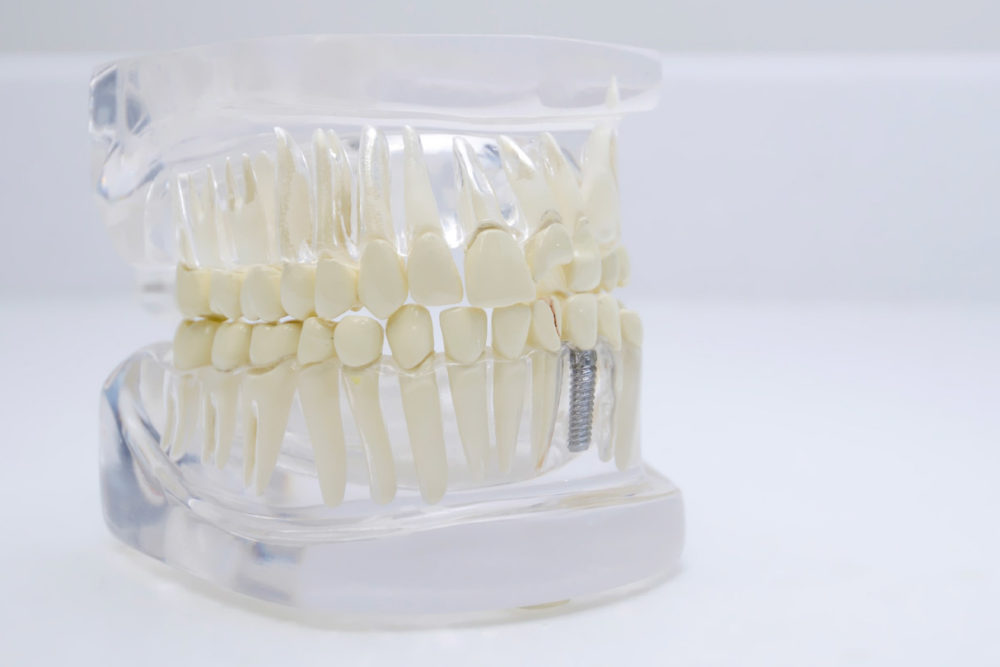
September 24, 2020
Dental Implants vs Dental Bridges
Not sure which way to go? Get info that may help.
If you have a missing or damaged tooth, you’re not alone! Many adults end up needing to replace a tooth or teeth at some point, and if that time has arrived for you, you may be trying to choose between an implant-supported restoration or a dental bridge. The choice depends on everything from your particular dental situation to your budget, and the best thing to do is always to talk with one of our dentists. But in the meantime, here is some information that will help you feel more informed about the decision.
The difference between a dental implant and a dental bridge.
An implant-supported restoration uses a titanium or zirconia root fixture to replace the root portion of a missing tooth. The fixture will be carefully placed in the optimal position, where it will eventually fuse with the jawbone to create a permanent and stable support for your restoration. An abutment will be attached to the implant, and a dental crown, custom designed and milled for you in our on-site lab, will be placed on the abutment to replace your missing or damaged tooth.
A bridge is a restoration that spans the gap left by a missing tooth. Instead of using an implant to anchor the restoration, a bridge typically uses the teeth on either side of the gap to hold the restoration in place. Bridges can be made of gold, porcelain-faced gold, or all-porcelain, depending on structural requirements and where they will show up in your smile.
Pros and Cons of Dental Implants vs Dental Bridges
- The Procedure
A dental implant requires a minor surgical procedure to implant the titanium post in your jawbone. It’s typical for a dental implant to require multiple visits and time for your jawbone to heal before the restoration can be completed. A dental bridge, on the other hand, requires a comparatively less complicated procedure and shorter overall timeline (a few weeks vs several months). - Maintenance and Longevity
So what lasts longer, a bridge or an implant? Well, one of the main benefits of a dental implant is that they require very little maintenance over and above regular dental care. This ease of maintenance may provide a longer lifespan. Bridges need a little extra daily maintenance and can succumb to the effects of tooth decay just like any other tooth. - Health of Surrounding Teeth and Jawbone
Dental implants have some positive benefits for your overall oral health. The implant itself stimulates and preserves natural bone growth and reduces the otherwise inherent risk of jawbone deterioration that comes with losing a natural tooth. A bridge does not fill the empty space in the jawbone, so bone loss will result. A bridge uses adjacent teeth for support, and this requires removal of tooth structure in order to prepare them for the placement of the bridge. An implant-supported restoration doesn’t affect the surrounding natural teeth at all. - Natural Look and Feel
Dental implants are the closest replica we have for teeth in dentistry today. They look, and function like natural teeth. A bridge is also a very functional tooth replacement and with modern ceramics they often can’t be distinguished from natural teeth. - Cost
A big question that many patients have is what costs more, a dental implant or a bridge? Due to some of the factors mentioned above, such as a more complicated procedure, more visits, and high-quality materials, A single tooth dental implant typically costs about 20% more than a single tooth dental bridge. The exact cost of either procedure will vary depending on the type of materials and your unique situation.
No matter what you decide, get high-quality, expert bridges and dental implants in Winnipeg!
Our doctors are highly trained and experienced, so no matter which way you choose to go, you can trust us with your smile! Your dentist will be happy to talk to you about your oral health, your preferences and concerns, and more, to make sure you land on the solution that’s right for you. Get in touch!